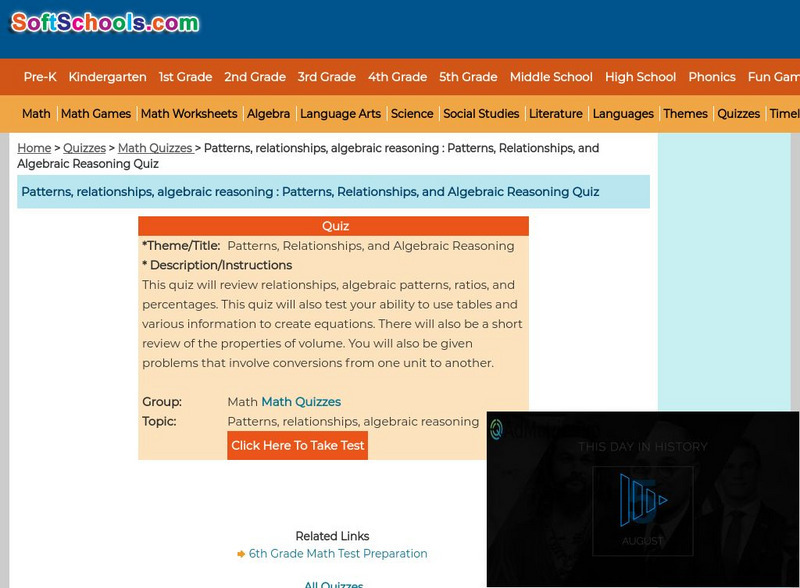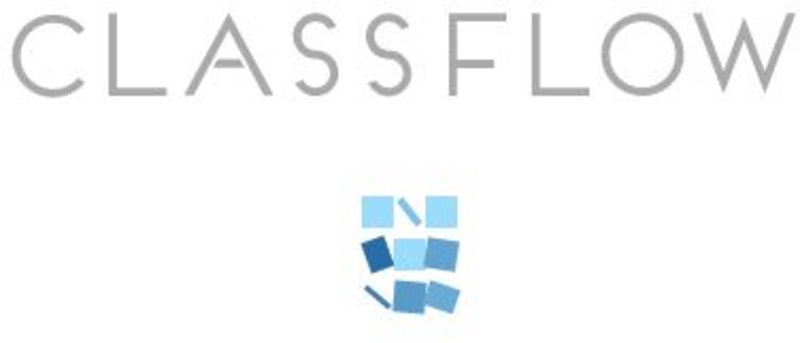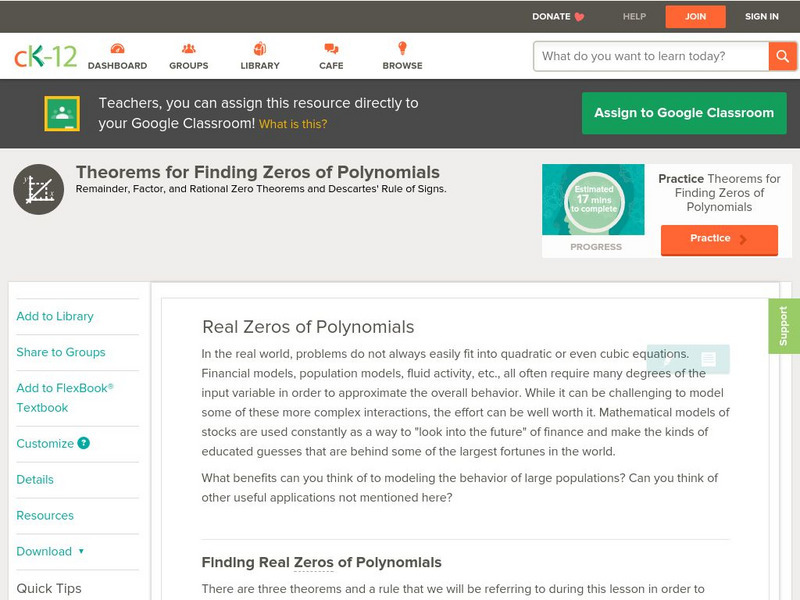Hi, what do you want to do?
Curated OER
Taxi Fare
Students discuss what they know about taxis and how they charge. They read the problem and work in pairs focusing their thinking on the repeating pattern of twos. They then share their solutions and conclude with some class practice...
Curated OER
Shaking Hands
Students use diagrams or lists to show relationships. They also identify the pattern of triangular numbers. The mathematics behind situations provide a way of problem solving to examine the answers.
Curated OER
Free Cell
Fourth graders use algebra to begin solving a problem. The problem has a real world application to engage learners. The main skill is converting fractions and decimals. Also finding the right number sentence for the word problem is...
Curated OER
The Topsy-Turvy Twins
Fourth graders read the problem and brainstorm for ways to solve the problem - list these on the board for the students to refer to as they solve the problem. They work in pairs and focus on the strategy selected.
Curated OER
No-Three-In-A-Line Game
Students use logic and reasoning to answer problems. Through interpreting information and results in the context to examine patterns. They examine how to solve the problems using strategy in mathematics.
Curated OER
Exploding Numbers
Learners discuss how numbers increase when exponential growth is occurring. They view a video and compare exponential and linear growth with a graphing calculator.
Curated OER
Reversing Numbers
Second graders solve a math word problem involving the addition of two digit numbers. They discuss the problem as a class, independently explore the problem, and discuss as a class the solution and how they organized their reversed...
Curated OER
The 500 Problem
Students explain face, place and total value of numbers as well as solve three-digit subtraction problems. Before trying answer the problem Students must be able to examine that the same digit is used to represent different amounts.
Curated OER
Triangle Sums
Fourth graders determine a way to place numbers in the nine circles that are arranged in a triangular pattern so that each side has an equal sum. They use each number once and practice adding single digit numbers.
Virginia Department of Education
Give or Take a Few
Young mathematicians extend their knowledge of rational numbers on a number line to graph inequalities by first using number cards to compare rational numbers. They finish by using similar reasoning to graph inequalities on a number line.
Mathigon
Mathigon: Algebra: Sequences and Patterns
Explore this course in sequences and patterns including simple sequence, triangle and square numbers, terms, recursive formulas, and explicit formulas. Click on Trailer on the top left to watch an introductory video.
Mathigon
Mathigon: Algebra: Sequences: Pascal's Triangle
This lesson focuses on Pascal's Triangle, a number pyramid in which every cell is the sum of the two cells directly above. It contains all binomial coefficients, as well as many other number sequences and patterns.
Math Planet
Math Planet: Algebra 2: Geometric Sequences and Series
Gain an understanding of geometric sequences and series by viewing examples and a video lesson. [1:46]
Government of Alberta
Learn Alberta: Math Interactives: Exploring Patterns (Object Interactive)
This interactive Learn Alberta math resource offers a hands-on exploration of number patterns. Students get to control an animated squirrel in order to figure out terms in a sequence and see each pattern represented both in picture form,...
Mangahigh
Mangahigh: Algebra: Recognize Number Patterns and Relationships
Students work through an online turorial on the topic of number patterns and then take a ten question quiz that increases in difficulty as the problems progress.
Mathigon
Mathigon: Algebra: Special Sequences
In addition to arithmetic and geometric sequences, Fibonacci Numbers, and figurate numbers, there are countless interesting sequences that don't follow a similar, regular pattern. These include prime numbers, perfect numbers, the...
Soft Schools
Soft Schools: Patterns, Relationships, and Algebraic Reasoning Quiz
Students are assessed on their math skills (knowledge of ratios, percentages, volume, and measurement conversions), as well as their ability to write equations, read tables, and analyze information. This quiz was designed to help...
PBS
Pbs Mathline Lesson Plan: Struts'n Stuff [Pdf]
Incorporating concepts in algebra, number sense, patterning, data collection, and geometry, this instructional activity engages students in various hands-on activities to explore the relationship between regular polygons and the number...
PBS
Wnet: Thirteen: Patterns to the Rescue
Patterns and sequences of numbers are explored through this lesson.
ClassFlow
Class Flow: Match Sequences Algebra
[Free Registration/Login Required] In this flipchart, students investigate patterns and sequences used in constructing various shapes using match sticks. Students then develop their introductory algebraic sense by determining the formula...
ClassFlow
Class Flow: Sequences
[Free Registration/Login Required] In this Flipchart, students use the visual and interactive tools in Activstudio to recognize, extend, or create a pattern or sequence between sets of numbers and/or linear patterns.
CK-12 Foundation
Ck 12: Analysis: Recursive Formulas
[Free Registration/Login may be required to access all resource tools.] This lesson covers how to find a pattern and write a recursive rule. Students examine guided notes, review guided practice and attempt practice problems.
Mathigon
Mathigon: Algebra: Fibonacci Numbers
This lesson focuses on Fibonacci numbers, a pattern based on the sum of the two previous numbers. It offers examples and practice exercises using some form of Fibonacci numbers.
University of Cambridge
University of Cambridge: Nrich: Games Frogs
Use this interactive game to improve your knowledge and understanding of patterns and algebra. Can you describe a rule to follow where you make the least moves? Just follow the instructions below it.
























